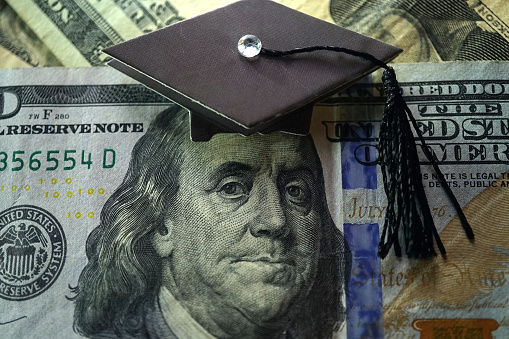
The burden of student loan debt has become an all-too-familiar struggle for countless individuals pursuing higher education. While loans can be a valuable tool for financing education, they often lead to years, if not decades, of financial strain for borrowers. Student loan debt in America has recently reached about $1.75 trillion. That's about $28,950 per borrower.
Believe it or not, bankruptcy may be a viable option for anyone looking to lift the financial burden off their shoulders. But unlike credit cards and personal loans, discharging student loan debt in bankruptcy isn't a simple process. That's why it's important to first speak to an experienced South Carolina student loan bankruptcy lawyer at Benjamin R. Matthews and Associates, LLC.
Do I qualify to discharge my student loan debt in bankruptcy?
To be eligible for student loan discharge in bankruptcy, you must prove that paying your existing loan would cause you financial hardship. A decision will have to be made in bankruptcy court during an adversary proceeding. Your creditor may attend the proceeding to challenge your request for student loan discharge.
Bankruptcy courts typically look at a few key factors to determine if repaying your loans would cause you undue hardship. Most jurisdictions use the Brunner test to determine these factors:
- Level of poverty: You must first demonstrate that you're unable to maintain a minimal standard of living for yourself and your dependents. This factor must be based on your current income and living expenses. This often involves providing detailed documentation to prove your financial situation.
- Persistence of poverty: You must then prove that your financial situation will likely persist for a significant portion of the repayment period.
- Good faith: Lastly, you must prove that you have made a good-faith effort to repay the loans. A bankruptcy court may consider whether you have explored income-driven repayment plans, sought deferments or forbearances, or attempted to negotiate with the loan provider.
What if the court determines repayment would cause me undue hardship?
If a bankruptcy court determines that paying your student loan would cause you undue hardship, they may take certain actions to alleviate that hardship. This includes:
- Full student loan discharge: If the court determines that repaying any portion of your student loan will cause undue hardship, they may fully discharge the debt.
- Partial student loan discharge: The court may grant a partial student loan discharge, which will reduce the debt burden to a more manageable level.
- Loan repayment under different terms: In some situations, the court may order extended repayment terms, which could lower your monthly payments over a longer period of time. They may also lower the student loan interest rates. This makes paying the debt more manageable.
What if the bankruptcy court doesn't discharge my student loan debt?
If you're student loans can't be discharged in bankruptcy, you're not completely out of options. You can apply for any of the following to help make the debt more manageable:
- Income-driven repayment plans: Consider enrolling in income-driven repayment plans that place a cap on your monthly payments.
- Temporary forbearance or deferment: You may be eligible for temporary forbearance or deferment, which allows you to postpone your payments due to financial hardship. Interest may occur during a forbearance or deferment, however.
- Loan consolidation: Consolidating your federal student loans can help extend your repayment term and potentially lower your monthly payments.
- Loan forgiveness program: Depending on your career or circumstances, you may qualify for student loan forgiveness. This forgives a portion of your student loan debt after a certain number of qualifying payments. The most common loan forgiveness programs include Public Service Loan Forgiveness and Teacher Loan Forgiveness.
Consult with a South Carolina student loan bankruptcy lawyer to learn about potential next steps
Are you ready to alleviate your student loan debt? Before making any decisions, speak to an experienced student loan bankruptcy lawyer at Benjamin R. Matthews and Associates, LLC, and find out which options are available to you. Even if you don't qualify to have your student loans discharged, we can help you discharge other types of debt through Chapter 7 or Chapter 13 bankruptcy.
To get on the path to financial freedom, contact us and schedule a free case review with our legal team. We have law offices in Columbia and Rock Hill, South Carolina.
